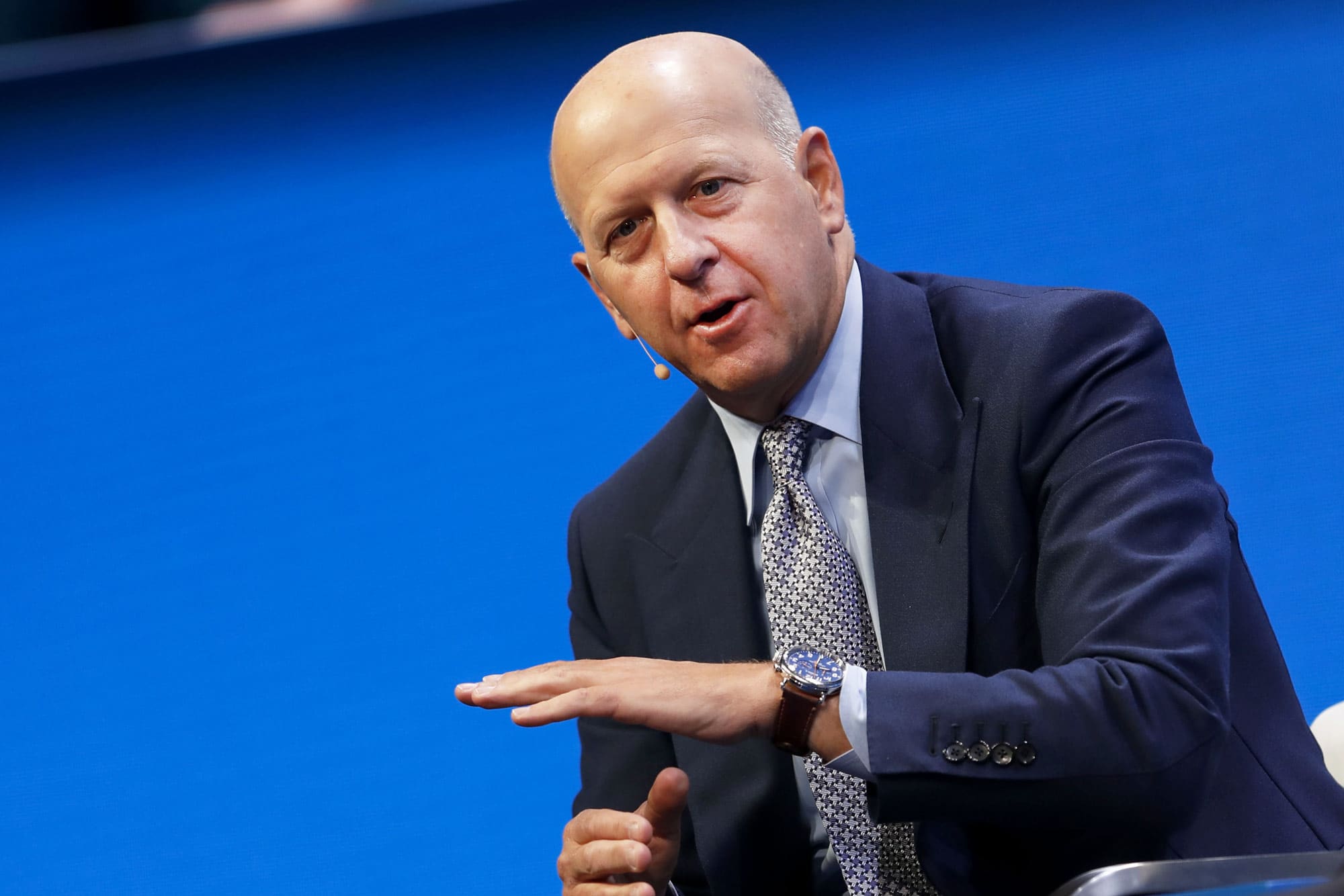This post was originally published on this site

David Solomon of Goldman Sachs & Co.
Patrick T. Fallon | Bloomberg | Getty Images
Goldman Sachs CEO David Solomon says the bank’s stake in WeWork is still profitable, even after the company suffered a number of valuation cuts and now faces a bailout crisis.
“That was an investment we made a number of years ago at a lower valuation … at the current mark, even if it went down from here, we still have a profit in the remaining position,” Solomon told CNBC’s Wilfred Frost on Thursday.
The co-working space company has gone through a vicious cycle of scrutiny in the past few months. Once valued as high as $47 billion, some estimates put WeWork’s valuation at $15 billion or lower. In the weeks since, co-founder Adam Neumann was ousted from the role of CEO by WeWork’s board, the company withdrew its IPO paperwork and it is now poised to run out of money by the middle of next month. J.P. Morgan and SoftBank are in discussions to put together a financing package for WeWork.
“We’re watching that situation like everybody else and it will be interesting to see, as they re-focus the business, how that business moves forward,” Solomon said.
Solomon also defended WeWork’s model, saying “there is a real business that underlies that.” Asked why Goldman signed off on WeWork’s IPO paperwork, Solomon gave his take on how the firm attempted to navigate a conflict of interest between its due diligence and its incentive to help WeWork debut with a high valuation.
“There are always conflicts of interest for an organization like ours and we do our best to make sure we’re transparent where those conflicts exist,” Solomon said. “I think what’s unfortunate about this, and I think it’s a little bit of an adjustment broadly speaking with respect to the IPO process, there’s been a lot of focus on growth at all costs.”
“I think the IPO market is pivoting and getting much more focused again on growth with a path to profitability,” Solomon added. “I think, as there’s been a focus on growth at all costs, there’s been a more lax approach than I personally think is appropriate around governance and I think that’s getting corrected a little bit.”
Even though WeWork now appears to be largely in crisis, Solomon believes the company backing down from an IPO was the right result.
“I think at the end of the day the market process worked,” Solomon said.





